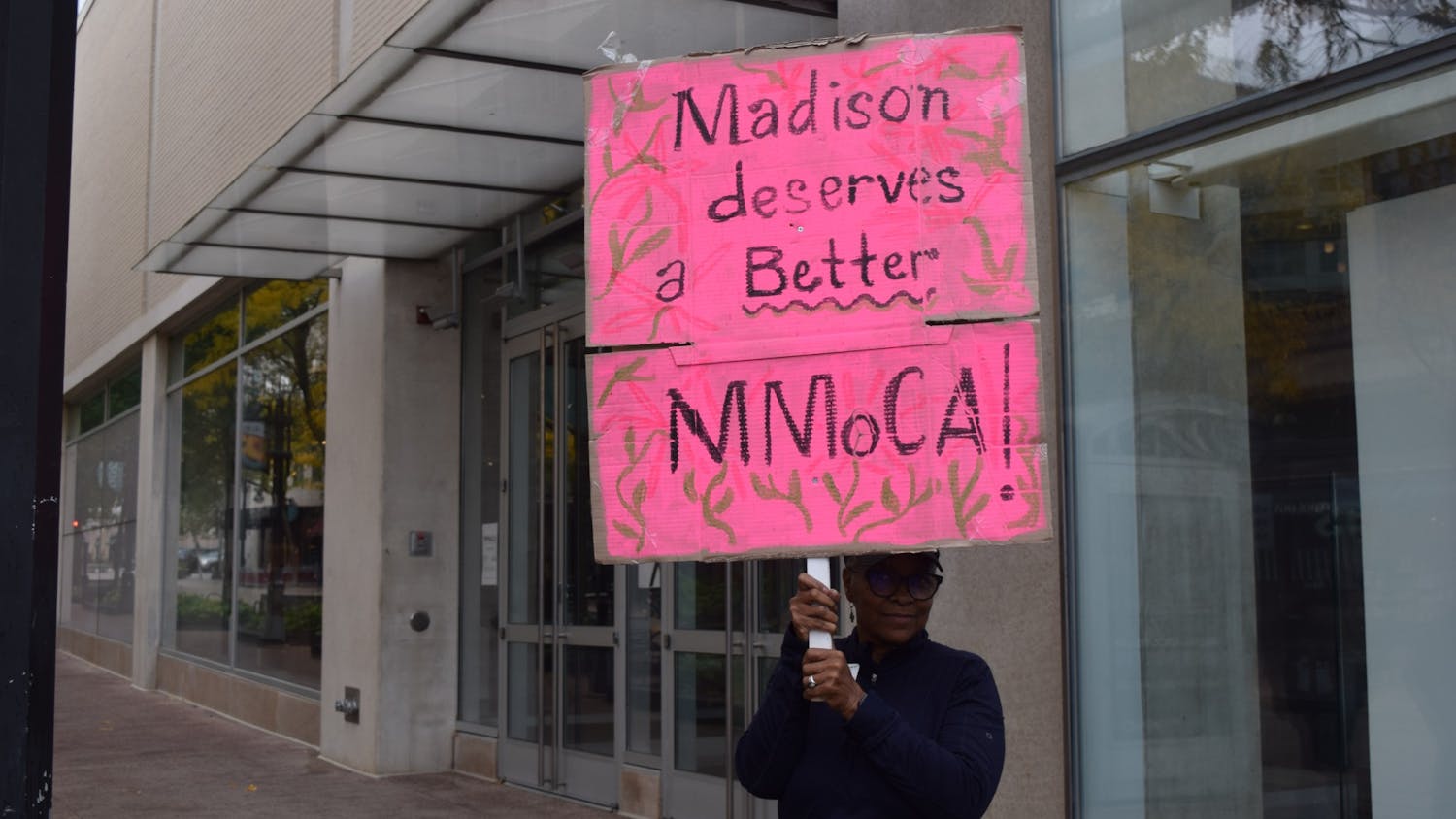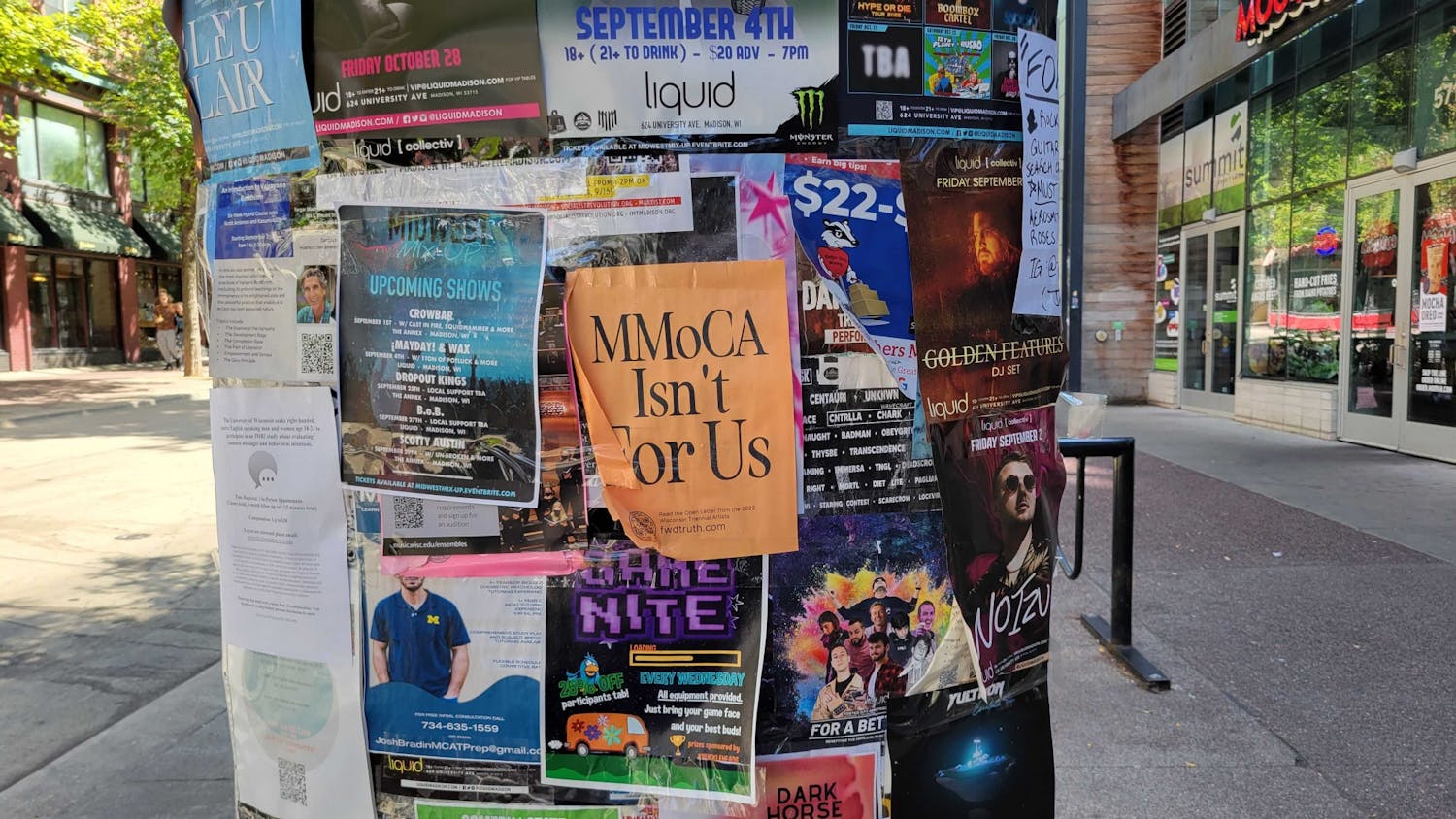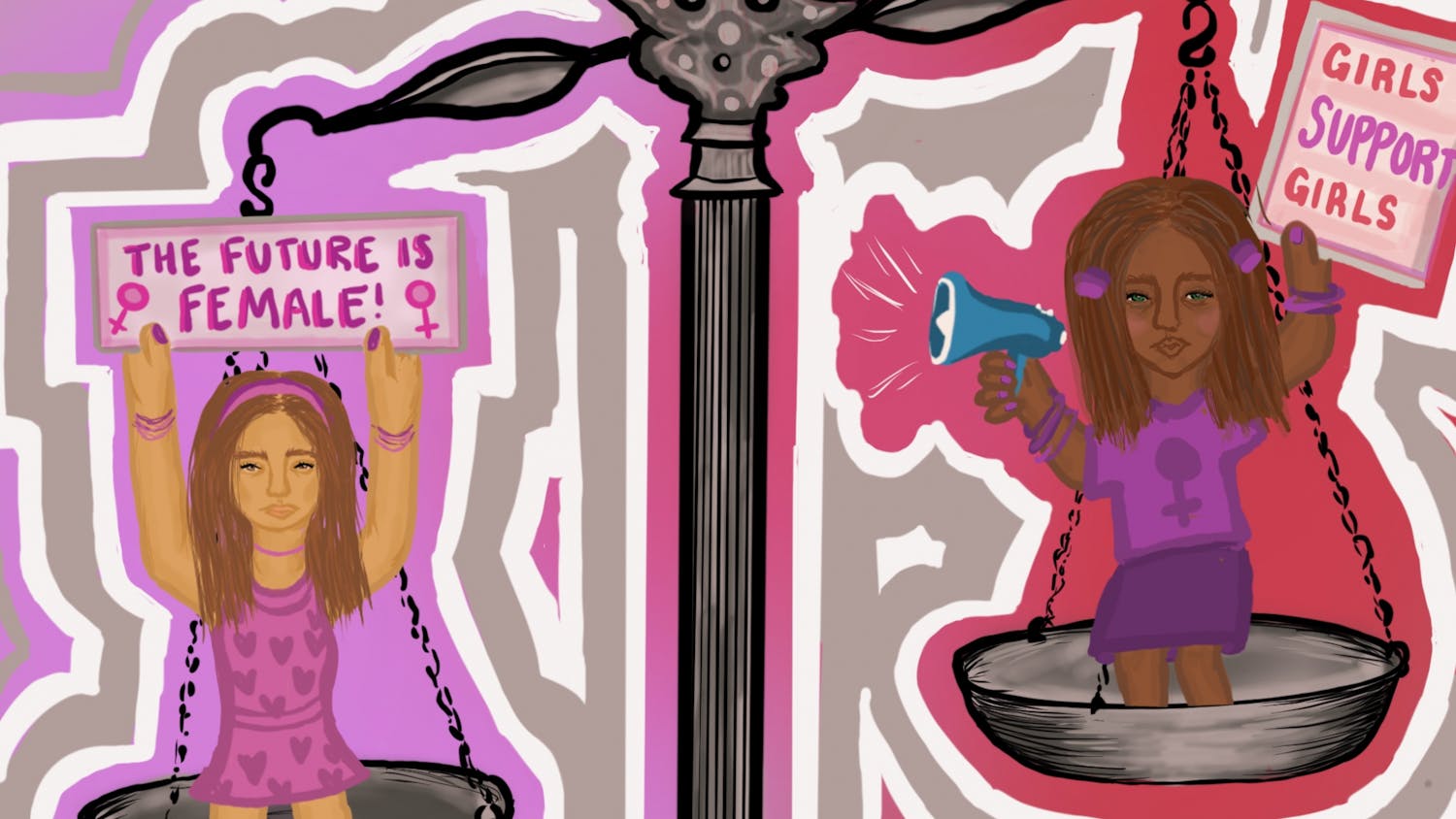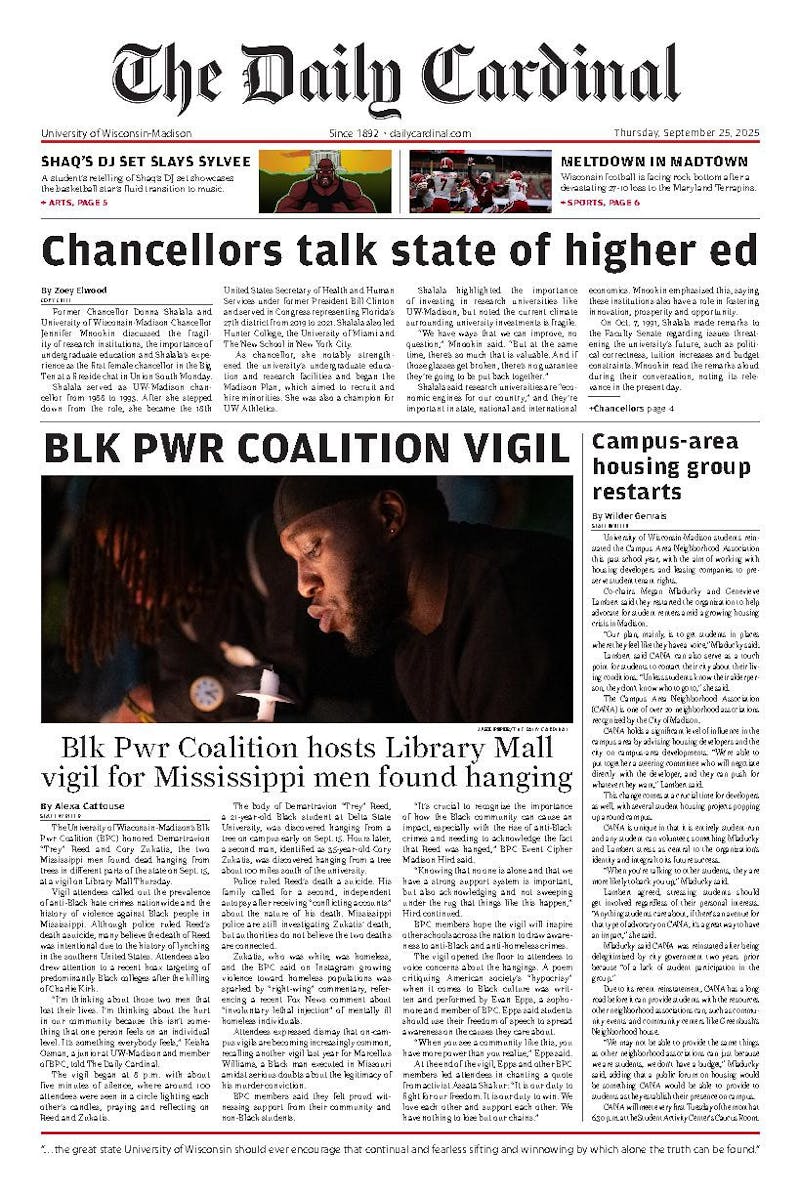As I trudged through the snow this past Sunday towards Union South, wind whipping tiny shards of ice into my face, I was uncertain as to what I was heading into. The Marquee Theatre was showing an oddly intriguingly titled film called “Dear White People.” I had no idea what to expect but going in with an open mind yet somewhat predictive thought process was indicative to my experience with the movie. “Dear White People” is an interesting film. It has enough awkward racial quips and jokes to make even the most multicultural person fidget in their seat, yet contains enough genuine heart to pull you right back in. Addressing a tough topic such as race is enough to interest almost anyone, especially when you can sit back and listen and don’t have to approach the uncomfortable topic yourself. From very early on in the film, we learn that the last thing this movie will do is hold anything back.
We are brought to an Ivy League university, where the topic of race is discussed often yet very differently. We meet a number of black and white students and faculty members, all intertwined in a complex and complicated storyline revolving around race. Our protagonist Sam, played by Tessa Thompson, holds impressive grudges and bold beliefs on the place of black students at her school. She holds a weekly radio show (called Dear White People), where she voices her thoughts to the entire campus. She then wins a spot as the president of the Anderson/Parker, the traditionally black student resident hall, and strictly enforces her beliefs.
This is where the plot really begins to thicken. The ensemble cross and re-cross each other’s paths, romantically and professionally. It’s a complicated but realistic story and its themes are those of the movie itself. Race is a complicated and intricate subject, not only because it’s hard to talk about or people’s beliefs differ, but because of the individuals that are bound by it. The majority of the characters we meet in the film all collectively are conjoined by the fact that they are black. But this does not mean that they are even remotely similar. Some spend their lives trying to act white, others trying to be black, and some never being able to fit in anywhere.
This is a theme that is easy to relate to a campus such as our own. With such diversity, it seems like it would be easy to fit in somewhere, but often it may be the opposite. Universities, just as society does, seem to think that those people belonging to a race are all similar. But every single person in our university, just as in the movie has a different story with a background that has changed them into the person they are today and no one knows that story like the person themselves.
The film is well acted and funny. It pulls you in and allows you to feel comfortable and embracing of its difficult topics. It’s a story of love and identity, and finding out who you are no matter what your race. The film asks if there is still racism in America and it doesn’t have an answer. Interracial couples make love, same sex lovers kiss and the question changes from “Is there still racism in America?” to “How can there still be racism in America?” There is such diversity and intricate storylines in our world that it’s impossible to reduce someone to a stereotype because we simply have no idea who they are. In the end maybe that’s all that matters, no matter what color, gender or beliefs, we are all ourselves, each writing our own story.
Correction: A previous version of this article inappropriately used the term "mulatto." The Daily Cardinal apologizes to anyone who was offended and deeply regrets this error.





